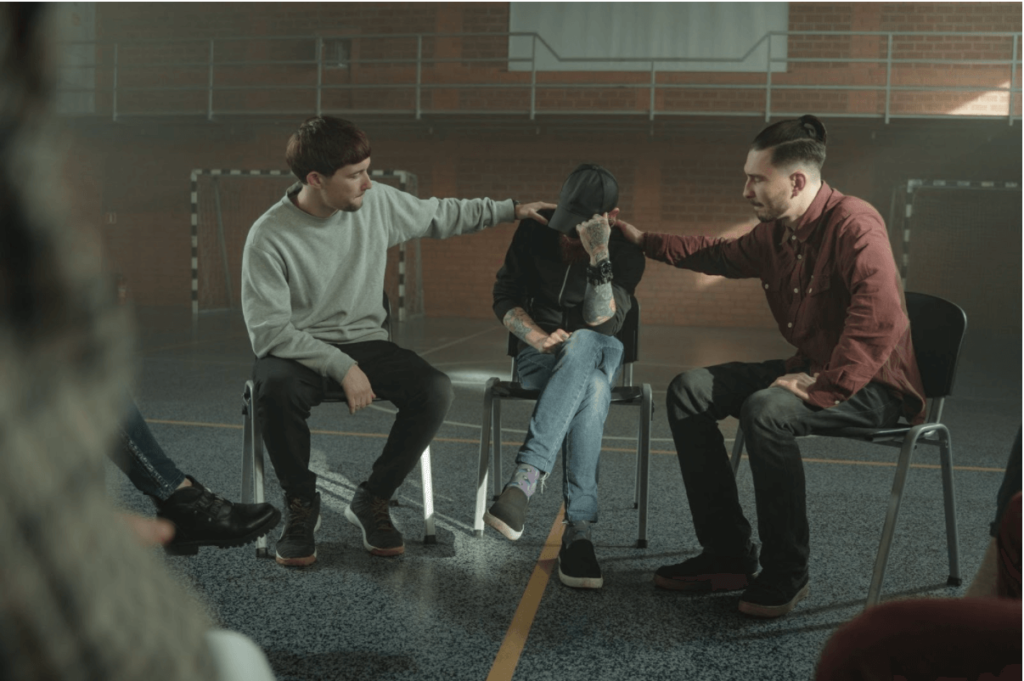Overcoming addiction is a huge milestone for a lot of individuals. Unfortunately, it is an almost impossible feat to achieve for some. So many people try and give it their very best, but they can’t seem to overcome addiction. Addiction recovery is not a bed of roses. It requires willpower and self-discipline. So, if you’ve been trying to overcome addiction, you’re not alone in this journey. Overcoming addiction is not easy, but you need to give it your best.
Exploring various ways to treat addiction, individuals may find comprehensive support and effective interventions at drug and substance treatment centers in Arizona, offering tailored programs to address addiction and promote lasting recovery.

It is crucial to know the kind of treatment that will work for you. There is no one-size-fits-all for treating addiction. Addiction treatment varies. It is dependent on what you are addicted to. Addiction can involve the use of substances such as alcohol or narcotics and behaviors such as gambling, pornography, food, and so on.
Addiction treatment is also dependent on the healthcare options you can afford, your mental and physical health needs, and a host of other factors. There are different ways to treat addiction, and if you want to know the best, you are at the right place.
Here are the top 6 ways to treat addiction.
Long-term treatment center
This kind of treatment is popularly known as rehabilitation or rehab. Long-term treatment centers or establishments are commonly called rehabilitation centers. This treatment is sometimes the last resort when other methods have proved unsuccessful, especially for individuals battling chronic addiction.
Here, individuals or patients reside in a standard facility to receive adequate medical care and support. A long-term treatment center has well-structured programs designed to address all aspects of addiction. There is also the option of sobriety homes or sober living homes. These are residential treatment centers for individuals moving from in-patient rehabilitation centers to everyday life. Going to a long-term treatment center is an excellent option for people in recovery that require more time to reinforce what they learned in rehab. These homes help strengthen new healthy habits while living in the safety and security of a structured environment.
Continuous Therapy
Treating addiction with therapy is based on abuse patterns and the individual’s health. Addiction counselors usually conduct therapy in either individual or group sessions.
The most popular form of therapy used in treating addiction is Cognitive Behavioral Therapy (CBT). This therapy helps individuals recognize and manage situations that trigger the desire to use substances or fall back to abusive behavior.
There are other forms of therapy such as Rational Emotive Behavior Therapy (REBT), Experiential Therapy, Psychodynamic Therapy, Holistic Therapy, Biofeedback Therapy, Motivational Enhancement Therapy, etc.
Support groups

Support groups, if not necessary, constitute a very important aspect of treating addiction. Finding a group of people who have been where you are and understand what you are going through can be comforting. Having a good circle like this is very motivating as you all want the same thing, to get better.
Joining a support group is usually the last part of an addiction treatment program. It is strongly advised that recovering or recovered patients join a support group after completing a treatment program for addiction, and this is for a good reason.
Support groups allow for continued long-term care after rehab. Here, you meet like-minded individuals who offer motivation, inspiration, and encouragement. SMART Recovery, 12-Step Programs, Narcotics Anonymous (NA), Alcoholics Anonymous (AA) with their 12 AA principles, and other support group programs are available. It is important to find the right support group tailored to your condition so you all can inspire and motivate each other.
Detoxification
Under medical supervision, detoxification is an effective treatment option for addiction, particularly alcohol, narcotics, and inhalants. It is usually the first step in addiction treatment as necessary in some cases. Overdosing on inhalants, alcohol, and narcotics causes serious bodily harm, sometimes leading to death. Medically-assisted detoxification rids the body of addictive substances in a safe environment, allowing for appropriate management of responses or medical issues.
Detoxification flushes the system of harmful addictive substances. Sometimes, these addictive substances in the body or bloodstream increase the desire to want more. That’s why it’s important to be proactive. Understanding what’s a functional alcoholic and what it will eventually lead to is key. If you know someone who has a substance or alcohol addiction, it’s important to encourage them to seek medical help. It’s just like sugar. The more you consume sugary foods, the more your body wants it even though you can’t feel full. So, you keep consuming more sugar because you crave it, yet you never feel satisfied.
Detoxification aids people in safely withdrawing from drugs or alcohol until the substances are no longer present in the body. Detoxification doesn’t necessarily treat the underlying behavioral cause of addiction, so it is usually combined with some form of therapy. It is often the first step in treating addiction.
Medication for Addiction
Medication plays an important role in treating addiction. Combined with behavioral therapies, medication promises good results in treating addiction. Medication is used in various stages or phases of treating addiction. Medications may be prescribed during detoxification or even throughout treatment to help with the recovery process. The medications help with reducing cravings, managing withdrawal symptoms, treating co-occurring disorders, decreasing addictive behaviors, improving mood, and a host of other purposes.
Medications are very useful in treating addiction. For example, acamprosate helps minimize acute drinking; lofexidine helps reduce withdrawal symptoms and cravings in individuals treated for opioid addiction. Medication for treating addiction is most effective when combined with other treatment options.
Contingency Management (CM)
One good thing about Contingency Management is that it can be used to treat a variety of addictions. It can treat tobacco, drugs, alcohol, and food addictions, among other things. Basically, this addiction treatment method is all about rewarding good behavior.
Contingency Management helps you reinforce positive behavior by setting milestones and tangible rewards. So, when you maintain sobriety, you get a reward. When you don’t relapse into addictive behavior, you are rewarded.
The reward has to be something nice, something you want, or something you’ve been looking forward to. It has to be something really good, so it can motivate you to be on your best behavior. This method of addiction treatment is very effective in managing relapse.
Recovering from addiction may be the hardest thing ever, but with the right treatment, addiction can be easier to manage. Going through this process without sufficient information doesn’t help either. It is necessary to talk to a medical professional to ascertain the best treatment to help you overcome your addiction.



